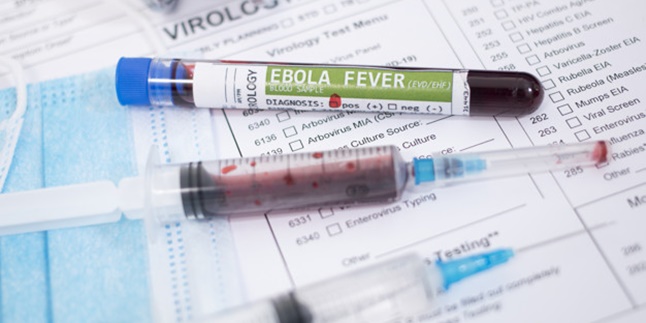Kapanlagi.com - Since the end of 2019, the world has been hit by a disease outbreak caused by the attack of the coronavirus covid-19. Until now, the spread of this virus has not been able to be controlled. Covid-19 is not the only disease outbreak caused by a virus. Previously, Ebola disease was also caused by a viral infection. Ebola is a dangerous disease that can threaten human safety.
The spread of the Ebola outbreak was found in several regions in Africa. The virus that causes Ebola is classified as deadly. Even according to liputan6.com, WHO data shows that the average death rate of Ebola disease reaches 50%. Like other diseases caused by viruses, Ebola is a disease that can spread and easily transmit.
Although it does not spread beyond the African continent, it is still important to know the ins and outs of this disease. Besides being additional knowledge, of course, it can also be a precautionary measure. Summarized from various sources, here is a review of Ebola as a deadly disease.
1. What is Ebola Virus?

(credit: freepik)
As mentioned earlier, Ebola is one of the diseases caused by a virus. The virus that causes Ebola is of the Ebolavirus and Filoviridae family. In more detail, the family of Filoviridae viruses includes three genera, namely Cuevavirus, Marburgvirus, and Ebolavirus. Within the Ebolavirus genus, there are six species, namely Zaire, Bundibugyo, Sudan, Tai Forest, Reston, and Bombali.
According to WHO data, the Ebola virus was found in African primates such as monkeys, gorillas, and chimpanzees. The first case of Ebola virus infection was discovered in 1976 near the Ebola River, which is now the Democratic Republic of Congo. After that, the virus spread from one person to another, eventually causing outbreaks in several parts of Africa.
2. Ebola Symptoms
After knowing what the Ebola virus is, you also need to know the symptoms of this deadly virus infection. Symptoms of Ebola virus infection can appear within a relatively long period of time, between 2 and 21 days since the last contact with the virus. During that time, the patient may experience various symptoms that can appear one by one or at the same time.
Some symptoms experienced by Ebola patients are as follows.
1. Feeling pain in muscles, joints, and abdomen.
2. Severe headache.
3. High fever.
4. Stomachache.
5. Gastrointestinal symptoms including diarrhea and vomiting.
6. Suddenly experiencing bleeding or bruising without clear cause.
3. Transmission of the Ebola Virus

(credit: freepik)
In addition to understanding the definition and symptoms, another important information about Ebola is its transmission. By knowing the transmission methods, you can be more cautious or anticipate if something bad happens.
In general, the transmission of the Ebola virus is through direct contact, especially between humans and infected animals. Animals that have the potential to be carriers of the virus include monkeys, apes, chimpanzees, bats, and similar animals.
In addition to direct contact between humans and animals, it turns out that Ebola can also be transmitted between humans. However, not every direct contact between humans can cause Ebola infection. To understand the transmission methods of the Ebola virus, please refer to the following explanation:
1. Direct contact with body fluids (blood, urine, saliva, sweat, feces, vomit, breast milk, and semen) from an infected person.
2. Direct contact with body fluids emitted by animals carrying the Ebola virus.
3. Direct contact with objects or medical equipment contaminated by the Ebola virus, such as through bodily fluids from infected patients or individuals who have died from the Ebola virus.
4. Contact with the semen of a man who has recovered from the Ebola virus, specifically through sexual activity. This is because the Ebola virus can still be present in the patient's bodily fluids even after they have been declared cured of the Ebola disease.
4. Preventing the Ebola Virus
To avoid the Ebola virus, there are several preventive measures that can be taken. These methods can be applied in daily life as a precautionary measure. The ways to prevent the Ebola virus are as follows.
1. Avoiding direct contact with blood and body fluids of animals that may carry the Ebola virus.
2. Avoiding contact with blood and body fluids of other people, especially those who have recently traveled to Ebola outbreak areas.
3. Adopting a healthy lifestyle by maintaining personal hygiene.
4. Not attending funerals of people who died from Ebola.
Those are some of the reviews about Ebola, which is one of the diseases caused by a deadly virus. Hopefully, it is useful and can increase knowledge.
(kpl/psp)
Disclaimer: This translation from Bahasa Indonesia to English has been generated by Artificial Intelligence.














